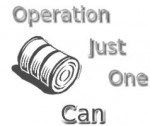In these tough economic times, getting the best deal terms in all aspects of your business is more important than ever. So, I have asked the CarolRoth.com contributor network of entrepreneurs and experts to let you in on their top strategies for negotiating with vendors, negotiating with service providers, and getting the most favorable deal terms in business overall. Their answers are presented below in no particular order.
You may notice some similar insights, but I kept the concepts separate, as something in the way one is framed may resonate differently with you.

1. The Power of Saying NO
The most powerful business negotiation strategy I learned was from the brilliant negotiation trainer Jim Camp. The strategy he taught me was the power of saying "no". If you can say no, you hold all of the power. If the company you are negotiating with gives you terms that you do not like, say NO. It is better to say no and not lose anything than to make a bad deal where you give away your profitability because you think you have to in order to make the deal happen.

2. Offer Win-Win Solutions!
My best "Negotiating Tip In Business" is offer win-win solutions. As we all know and if I can be honest, sometimes business negotiations can take a turn for the worst. Tainted business deals tend to be focused on trying to get the upper hand or coming out on top at the expense of others. Decide that the signature of your business agreements is going to be based on exercising morals and values. With this said, try to present options that offer win-win solutions. This way everybody benefits!

3. Most Important "Get Found" Tip
Know how to say NO in a non-confrontational way & say no BEFORE you reach your bottom line. Use the phrase, "I can't blame you for asking, but I just can't do that." I have used that phrase repeatedly. My prospects simply say okay and go ahead with the deal. If they had pushed, I might have been willing to go further, but the phrase intimated they had reached my bottom line. They were simply trying to get more. You can't blame 'em, any more than they can blame you for saying no. Deal done.

4. Silence Can Seal a Deal
Often in negotiations, people are quick to respond and fast to reject or accept an offer. Sometimes, slowing down the pace of the conversation and allowing silence can bring about the best results. A moment of silence before responding takes the emotion out and supports you in focusing on facts, so that you can respond instead of reacting. Silence also allows you to think carefully about the words you choose...as your words impact your results!

5. Frame it from THEIR Side
The opposing party doesn't care what you want. They care what's best for them. So, don't bother explaining details of why the deal is good for you. Your whole pitch should be focused on why the deal is good for THEM.

6. Walking is the Ace
The strongest position in negotiation is the ability to walk away. Anytime you cannot walk away, your position is compromised. If you "need" the job, you'll give up too much; "need" the sale, you'll drop the price & profit; "need" the guy/gal, you'll settle for something less.
In much of my sales/leadership development, negotiations always have those absolutes you cannot give in on, as well as those you can. Evaluate the absolutes & be willing to walk if they become the pawn. Opportunity abounds.

7. WWW
Create a "win win" solution for both parties and be willing to "walk" if that cannot be achieved.

8. Good Deals Work for Everybody
I begin by looking for a place where we both agree. Usually, it's that they want and/or need the services I have to offer, and I want to provide them with those services.
From there, we can jointly work out a deal that works for both of us.
Finding a small place of agreement to build on is my most effective negotiating tactic. It creates a situation in which we are both working together to solve a common problem -- not haggling over self imposed positions.

9. Mission Critical - One Mission
What's always worked best for me is to start with THEIR mission critical goal and to see how what I do moves forward THEIR mission. If I listen, I can usually find what they're doing that I also want to be doing. Then, I can say "You bring this to the venture. I bring that to the venture. Here's what I need to move us both forward and here's what I can promise that will make your life easier. Why don't we do this together?"

10. The Best Negotiation Outcome
The best advice I've ever heard when it comes to negotiating is: "When it's all said and done, BOTH parties should feel like they got the better end of the deal."

11. Silence!
Silence has definitely been my best tool during negotiations. The other party will usually sweeten the offer or concede to get the deal done. It seems that most people have a hard time with silence and often jump in to shorten the awkward times.

12. Silence is Golden
Once price has been quoted to me, I never respond immediately. It allows the seller to squirm. Sometimes, then they immediately offer lower price.
When I'm selling, after I have quoted the price, I'm silent (I assumed sale by giving figure). Sometimes, they make counter offer. Often they don't. If you've done a good job about benefits, that silence gives consent.
It's like starting a fire; you've got to stop fanning it long enough to let it breathe on its own.

13. D.U.E. Diligence
Great negotiations start and end with players who know the pros and cons of a deal. In short, "DO YOUR HOMEWORK" before you make any final decisions and gather as much information as possible. Know your strengths and weaknesses and best of all, what you possess that compensates for those weaknesses. Know what you can stand to give and take.

14. Play Ball with Your Vendors!
First, working with vendors to get clients the best deal is key. I put vendors on my team, making them responsible to deliver on time and on budget. Let vendors understand if you markup their product or service. This is not to be discussed with the client (my clients know when I markup something, so it's no secret, but it's not for vendors to talk about with the client). Smart vendors know if a project works, more projects will come. Play ball with vendors and no one strikes out!

15. Never Lose Another Negotiation
1. Never Lose Another Negotiation. Invite them to say no. Give them the right to veto proposals. Negotiation never ends with no, it begins with no. Trained to need yes? Stop it. Neuroscience is behind you.
2. Don't Be Needy. Don't need a deal? Don’t be excited. Don't cut to the chase. Don't let your voice speed up and go up with fear of losing. Do take notes, slow your speech, lower your speech.
3. Never prepare with a BATNA. Win-Win is dead. Master preparation like the big guys.

16. Have Other Stuff Going!
The key to negotiating success is not what you do in the deal in front of you, it's having plenty of potential deals in the funnel. Successful negotiating requires the ability to walk away from a bad deal, and you can't do that if the deal in front of you is the ONLY deal. So, make sure to never let your opportunity funnel drain down to one potential deal.

17. Strive for a Win-Win Solution
While our Congress may disagree, long-lasting solutions only work when both sides get what they want out of a negotiation. Spend more time up front trying to listen and understand what the other side really wants (or, more importantly, what they need)! A short-term win may result in a long-term loss, if you have ticked the other side off in your early negotiations.

18. To GET, You Need to GIVE
To receive better terms from your vendors or suppliers, you need to be flexible as well. Rather than just DEMAND more, be ready to bend on your terms or needs. Most people fail to realize that NEGOTIATION is a two way street. If you ask for more, then be ready to offer a bit more on your end. Offer something of extreme value to them that may not have a big cost to you, but nonetheless has value. Be nice, not rude. Then, be amazed at what can come your way!

19. Know Who You're Talking To
The success of any negotiation--from joint ventures to vendor agreements to sales--relies on knowing what the other person really wants. It's the deal behind the deal. Before beginning a negotiation, take a few moments to research and focus on the outcomes that will ripple out from a successful conversation. Focus on those and you'll get to the heart of the matter in moments. What else could the answer be but yes?

20. Persuade Your Potential Client
Emphasize the speed at which you will do the work - supply the service or goods the client needs and be reliable for after sales service at all times.

21. Use "Personality Negotiations"
Different personalities have different "action buttons". If you understand the personality type of the person you are trying to get a good deal from, you will know exactly what to say or do to strike the best deal for your company. For example, if you are dealing with the "Inspiring" type personality, let them know how they are going to look great to others. The "Supportive" types want to know that they are being helpful by giving you a better price!

22. Get it in Writing
Once you think you have reached a negotiated agreement, send back all of the details in an e-mail. "To summarize...Please let me know if I have left anything out." That helps the other party feel good about the win-win or add what is missing. Research shows that people listen for 7 seconds out of ten and drop out for 3 seconds. A great deal can be lost in that short amount of time. Don't let the things that fall between the 'listening cracks' come back to sabotage the deal.

23. I Stoop to Conquer
I try to avoid the hard-line approach, which most people find repulsive anyway. I highlight the what's-in-it-for-them, dangling the carrot early in the discussion. Speaking or writing in a level tone and lots of humor help keep the negotiation process positive for both sides.
At the end, the other side sees it as a win as well.

24. Help Me Help You!
When negotiating a service or business deal, you may find it helpful to demonstrate how your service helps others, makes a difference and benefits the service provider or client's bottom line (A Great Investment). Tell what YOU can GIVE in return for their best deal and follow through. Instead of building a relationship, build a partnership!
Thanks to: Faithe Rogers.

25. Be Willing to Walk Away
You have to be willing to say no and walk away instead of accepting an inferior deal. When you do, people will frequently chase you to do business with you, because they want the deal more than you do and that is the most important thing. You have to want it less than they do and you have to be willing to prove it. People will learn that you mean what you say. The one who wants the deal the most always loses in the negotiation.

26. Don't Be Desperate
All negotiations must start with: You Don't have to make the deal. Failing to do that makes you desperate and weak, which will be reflected in your persona. Don't kid yourself that it won't. Make a contract with yourself that if the deal doesn't come off, you will not use that as evidence of incompetency. The way to do that is by doing your homework with the full knowledge that outcomes don't always dovetail with expectations. To believe otherwise is an illusion that makes us stupid.

27. The Package Deal
Packaging your offers can turn a "no" into "I want that one!" You may know the client's problems and budget, but not what he secretly wants most. One element of your package may just hit his sweet spot. I have had clients sign contracts for amounts I didn't expect, just because a package offered one service the client really wanted. People are funny that way. So, the tip is to prepare well ahead of time, know what you're willing to walk away with, and make an offer the client cannot refuse!

28. What Would YOU DO?
When I have found myself in a standstill negotiation where the vendor or client doesn't budge and leaves you wondering how to turn the situation around, I often ask them 'What would YOU DO if you were in my shoes?'
Most times, this changes the conversation as it causes them to think how they would handle the situation if the shoe was on the other foot, so to speak. It seems it's always easy to make statements or judgments when it's somebody else, but when you turn it around, not always so.

29. Online Auctions
Solicit vendors and providers to participate in an online auction for your business. Be sure to have a least three qualified participants. Explain the ground rules up front and set a cut off time, no longer than 30 minutes. Make sure each participant can see the low bid and the remaining amount of time left on their computer screens. Also, indicate that you are free to accept any bid, not just the lowest one. This generates intense competition and results in lower prices.

30. Everyone Wins!
In a good negotiation/deal, everyone wins. Find a way to get what you need and to make sure the person on the other end gets what they need, or at least feels as though they didn't "lose" in the negotiation.
For example, you're hiring an event company and they cut their prices for you. Allow them to have their contact info visible, so event attendees can hire them for their events. You win by getting better pricing and they win by getting the exposure and free marketing.

31. Walk the Talk and Then...Walk
Know the point at which you stop negotiating, stop conceding, and stop being a player in the give 'n' take game. When you reach that point, when you know you that you must not yield anything more, simply walk away. The trick, of course, is knowing in advance what your breaking point is and then, having the fortitude to leave the potential opportunity behind you.

32. Build Strong Relationships
In today's world where everyone wants things faster, cheaper and better, I think we need to step back and look at things from the other side of the coin. We tell our sales staff to sell value, relationships and keep up the margin. However, when we deal with suppliers, we are constantly threatening to leave them if they cannot meet our needs in terms of speed, price and quality. Is this an oxymoron or what? My suggestion is to find suppliers you trust, work with them and profit together.

33. Relational Influence
Once you understand what the vendor/service provider is looking for- create a WIN WIN situation. Leverage the importance of the RELATIONSHIP over the AMOUNT of the contract. Give them what they need in the framework of what you can live with from a financial standpoint. PROVE your worth and you will get more business from them than you ever dreamed...

34. BRIBE the Vendor Rep
I take advantage of Politics inside vendor/supplier biz AND the fact that a sales/clerk or Rep has amazing power - IF SHE IS MOTIVATED to help you.
#1 - I make repeated phone calls until I get a Rep w/Experience.
#2 - After she tells me about options others DID NOT - I THANK HER.
#3 - Then, I ASK to talk to her Manager in order to give her my GLOWING TESTIMONIAL (at which time I mention the Bad Reps who cussed me or hung up).
#4 - I get BIG Discounts this way.

35. DON'T Name That Price!
The best negotiating tip to get more out of vendors, service providers, and the best deal terms is to always have them name the price first.
After multiple attempts to get them to name the price, always name a price range. As the conversation continues, always refer to the price that is more in your favor. For example, when wanting to pay the least amount, you might mention $500 to $700. The next time you mention the price you only mention the $500 price.

36. Winning in Negotiation
I've always heard, and I know it to be true, that rule #1 in negotiating is "Ask for more than you want." In this economy, they should change the verbiage to "Ask for more than you need." If your vendors are selling any items that are "apples to apples" and price is the ONLY factor, you can make them compete. Overall, in this economy, any vendor or other business entities related to your business should be willing to "wheel n' deal." Ultimately, both parties should feel good about the deal.

37. Tips to Get What You Want
My best advice is to remember that EVERYTHING is negotiable. If you don't ask or question when making a deal, you will pay the maximum for the minimum. Also, negotiate with the person who can give you what you want. This may not be the person on the other end of the telephone or behind the counter.

38. A Little Tin Box
Long ago and far away, when I was a kid, there was a song about keeping your secrets in a "little tin box". It has long been an inspiration for me and I hope you can use this yourself. Basically, you have to be willing to walk away from any deal. It always gives you the upper hand, the strongest bargaining position. Jot down your goals and your limits, put them (and your emotions) in an Altoids box in your pocket and NEVER allow yourself to go past. Walk away if the deal isn't good enough!

39. What Can You Do For Them
The best negotiation strategy I know is to think about the negotiation from the point of view of what is it that they want and how you can help them get that. If you do that one thing, negotiations all become so much easier, because it becomes a win/win situation instead of a win/lost proposition. If they get what they want - even partially so - they will be more inclined to help you get what you want. It's really as simple as that!

40. The Benefits of Partnership
The business relationship works best when it's a win-win. Our suppliers and vendors are business people who understand the challenges we all face. As you develop the relationship, speak frankly with your partners and tell them why you do business with them and then communicate your challenges. If the relationship is based on trust, value and mutual benefit, then compromise is guaranteed.

41. Coffee is for Closers!
Coffee is for closers! But do you trust the coffee maker? Be generous with your knowledge and your help. If you solve an easy problem for someone quickly and ask nothing for it, they will be more likely to turn to you for their real issues. Generosity builds trust and trust is the ultimate closer. When you go to close, you have already crossed the biggest hurdle and they will be more likely to sign on the dotted line.

42. Know Your Intention
Be clear about your desired outcome. The first time I did this, it was for my first office suite. I knew exactly what I wanted and when the ideal spot and location opened up, I went to the meeting confident that I would get it because I wanted it so badly. The current tenants came with me. With them as backup, I was able to counter the landlord's conditions with my own, and convinced him that I was the ideal tenant. I got the space.

43. Playing Hard to Get
As humans, we are "hard-wired" to seek what we think is in short supply. Scarcity makes us want something even more. This characteristic of people can be used to your advantage in business deals: When making an appointment with a prospect, never be too readily available. Tell him you can "squeeze them in between 1:15 and 2:20 next week", not "My schedule is wide open, whatever time works for you." By being tightly booked, you are conveying that you are in demand, strengthening your position.

44. A Two Way Street
A deal isn't a deal unless it works well for all parties. If it is only one way, then there may never be another one between us. It would serve us best if we can all walk away feeling satisfied with what we have gotten. This will set the basis for us to have an ongoing working, mutually profitable relationship. The only way we can get to that point is to really not try to get the best OUT OF EACH OTHER, which becomes a tug of war, but to get the best OUT OF THE DEAL that works for all of us.

45. The Piece Versus the Whole
The best negotiations are ones where both parties involved look to win by not focusing just on the "piece" of what they want, but what they could gain collectively by focusing on the "whole". It all depends on the value of the relationship between both parties. If the relationships will go on beyond just one negotiation, then go for this type of win-win solution that benefits both parties. If it is a one time negotiation and no further relationship is needed, then this method is not necessary.
Thanks to: Myles Miller of
LeadUP.

46. Whoever Mentions $ First Loses
When you are negotiating with a vendor or prospect, the person who mentions money first usually is not in the favorable position. So when negotiating, make sure you find out the needs of the company first, insure that you have the solution and be sure to find out what their budget is, or what they are willing to spend before you put your proposal together. This way, you know how to position the winning proposal, and you are not hoping and praying that you presented the right dollar amount.

47. Make it Pay
Go into any negotiating session knowing what you want the outcome to be. When you have that settled in your mind, you can then negotiate the sometimes complex minefield that you need to pass to reach your goal. To make the journey easier, enlist the help of your negotiating partner. As Jerry Maguire said, "Help me help you." You may be able to easily give them multiple things that they want. In their mind, it paid to do business with you and they will happily return.

48. Everybody Wins
The best way to negotiate when wanting something is to be able to provide something that the other person wants. Then, you'll have leverage. Negotiation isn't about one person winning; it's about both people winning in a fair trade.

49. Pay Bills Fast
Nothing gets attention of vendors more than paying on time, or early. Establish this reputation and then ask for special pricing, free shipping, advertising credit, or whatever helps you out. Featuring a vendor's product in your advertising campaign should be worth some special pricing or a few free products. Money usually opens the doors to special deals.

50. Playing the Negotiating Game
Negotiating is like playing poker. Look for the weaknesses. When you identify at least three, rate them one to three--with one the biggest weakness and three the least. Begin negotiating with number three, then progress to number two, and finally, tackle the number one weakness. If you play your cards correctly, you'll frequently win all three. If you lose all three, fold your cards for the day and research your opponent more thoroughly before you try negotiating again.

51. Getting the Best Deal for All
Look for ways that everyone can win. There is an old story about children fighting over an orange. Mom offers to cut it in half. "NO!" They both scream at once. With tears streaming down his face, Little Johnny says that he needs the peel for a cake for Grandma's birthday. Sally says she needs the orange for the juice. Once the interests are clear, both Sally and Johnny can have what they want. The same works in business. There is more at stake than money. Talk to each other and look for win/win.

52. Your Name
Ever since I was a child, I can remember my father stressing, ‘Your name is important. Keep it clean, and you will always succeed.’
This was something that was burned into my memory and through all my years in business, it was a constant reminder to be fair and honest.
I met many who tried to take advantage of me in my various businesses, but with my father’s mantra always in mind, I simply stopped dealing with them. History showed that I succeeded in business. They did not.

53. Use Zen: Negotiate Effectively
The biggest problem all of us have in negotiating is getting the emotion out of the discussion and the analysis.
How? By doing Zen meditation regularly and especially before bargaining. What is that? Getting as far as possible outside of yourself--by watching not across the table, but the entire negotiation at once...
Why? Because we have a part of the brain, the amygdala, that fights the forebrain that is careful and analytic. Meditation puts the amygdala to sleep.

54. W.A.I.T.
W.A.I.T. = Why Am I Talking? Negotiations can often be anxiety-inducing events. When we're nervous, we talk. But, we run the risk of disclosing too much. If we shut-up and listen, we may hear something to help our case. The most important facts to seek are what they REALLY want and why it's REALLY important to them. Then, and only then, can we respond intelligently.

55. Biggest Negotiation Mistake
The biggest mistake people make in negotiation is thinking about what they want to get and giving little, if any, consideration to what they other person wants. You need to get out of your head and into the other person's head. Negotiation is a synonym for trading; you give me some of what I want and I'll give you some of what you want. Ask questions and listen carefully to understand what they want. Then, you can ask for what you want in return; if you give me this, then I will give you that!
Thanks to: Simon Hazeldine of
E3.

56. What's in it for Them?
Recently, I pitched a well known NFL team on considering Operation Just ONE Can as a viable humanitarian project to review. The approach I used was the factor of "What is in it for them". I stated how no other team ever initiated a season long effort to collect food for the less fortunate. I related all they do is ask fans to bring JUST ONE CAN of food to home games. A soup kitchen would collect food and transport to their venue. I stated the good PR they'd receive. Was it successful? Stay tuned!

57. He Who Cares Most Loses
In any business negotiation, it's important to understand this important fact. The majority of time, the person who cares most about a deal happening or not will lose...
The reason is, caring creates an emotional connection to the outcome. That emotional connection will cause you to settle for less or pay more. When negotiations are based on business sense alone, the facts of the deal drive desire, which means you decide based on profitability and not by a personal connection to the outcome.

58. Always Have Options!
Always Have Options! Nothing will make you more effective in a negotiation than exploring your options. Determine several people or companies that can help you achieve what you are seeking. Get several quotes. Understand the trade-offs. Then, negotiate for what you want knowing that you have other options.

59. Know Who's Cast in the Play!
Negotiating with someone who is not the final authority could result in your additional concessions when the decision maker arrives. Failure to qualify the person you are negotiating with before you make demands or offer concessions can greatly impact the negotiation. You must understand everyone's role. You must know who has the authority to say yes. You must know what your role is. If you enter a negotiation without this information, you have failed as a negotiator.

60. Shut Up or Lose Out!
The biggest mistake most business owners make is talking too much when negotiating. Focus on value first, not price. Quickly give the bullet point benefits your service or product offers--Whet their appetite! Then when they ask about price, just say, "The investment you'll make to enjoy all this is $___." State your price and ZIP IT! The next person to speak loses! Wait to hear their response and then you can move forward either sealing the deal or reducing some benefit to reduce the price.

61. Pay Me Now
It’s a fact. My customers are delaying paying invoices- sometimes as far out as 120-150 days. I am not alone. So, when I negotiate with suppliers, I tell them I’ll pay them on the delivery day- if they cut me the best deal. I’ve been able to negotiate excellent prices- probably because they are waiting a long time for payment on their outstanding invoices. That immediate payment, plus avoiding the hassle of having to follow-up on outstanding invoices can be a good bargaining tool.

62. Negotiation Blunder
What should you do when your prospect starts to increase their resistance to you? Let them persuade you. Let them win a few negotiation items. Why? Researchers have found that when someone persuades you to change your mind, they will be inclined to do the same. Conversely, if you resist that person's attempts and do not change your mind, then he will resist your attempts to change his mind. Bottom line - if you let them persuade you on a few points, they will be more open to be persuaded.

63. Leverage Your Power
NEVER GIVE AWAY YOUR POWER. Identify and maximize your power points.
NEVER be the first one to make the offer. Stay still and let them play the first card. Silence is the most powerful statement and has the greatest influence.

64. Bottom Line
Always have a bottom line, a point where you'll walk away if it isn't reached. You know what works for you and your business. You know what you can and cannot afford. Never enter any negotiation without having identified a point where you get up and leave.

65. Think Long Engagement
As with customers, it costs more to acquire a new vendor than it does to retain an existing one. Do you really want to train a new web developer on the intricacies of your sites every six months? Better to hire with an eye toward trusted partners. Be upfront about your long-term commitment goal, which gives the relationship greater value. This can mean more in the way of discounts or deals. Each of us needs steady business we can rely upon, so use the long engagement to your advantage.

66. Neediness Stinks!
When you enter into a negotiation with any neediness, your counterpart knows it. Neediness has an unmistakable stench to it. If you believe that you need this deal, this contract, or this concession, you are wrong. YOU DO NOT NEED ANYTHING. When you really get that, you are free to negotiate with no attachment to the outcome. So, how do you control neediness? Recognize that the only cause of neediness is your thinking. Stop treating needy thoughts seriously and watch your results blossom.

67. This is What I Can Do for You
The best negotiating tip is to always be able to tell what you can do for them. When someone sees the benefit to themselves of giving you something that you want, it's yours - of course, you have to make worth it for them.

68. Be Willing to Walk
Always be willing to walk away from the table. The person who wants something the least always gets the best deal. A skilled negotiator can feel it if you 'must' have it. Even if you want it, never act desperate. Confidence is an attractive quality, whether dating, interviewing for a job, or striking any other deal. Remember that 'once-in-a-lifetime-opportunities' come around about every month or so. There are other people who can offer you the same or better deal just around the corner.

69. Partner with Your Vendors
Many vendors are now doing events to showcase and highlight their products and services. Partnering is a great way to showcase your products and services and how you use their products and services. It is a good way to help each other and negotiate on price at events. Instead of buying a table at an event, you can split the costs and find a way to showcase both your products and services.
Do you know another negotiating tip that wasn’t included? If you do, please share it below. And as always, many thanks to everyone that contributed to this article!





































































